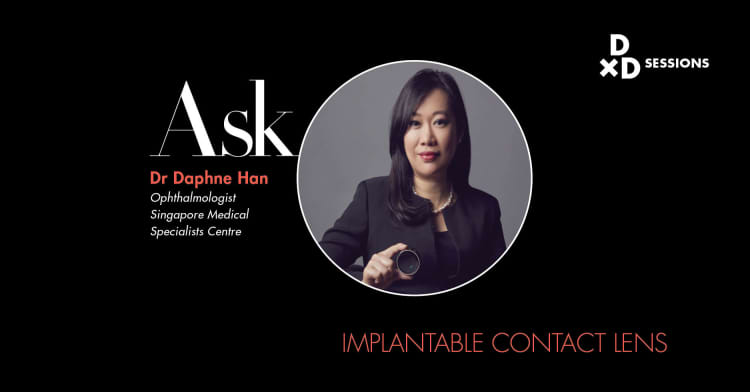I fully appreciate your concerns about safety and long term complications when trying to make a decision on whether to proceed with LASIK, or for that matter any form of surgery. One of the greatest challenges for any refractive surgeon is deciding which is the best course of action in assisting a person with both high myopia and astigmatism.
With respect to laser-based options such as LASIK, ReLEx SMILE or PRK, the surgeon has to ensure that the patient has sufficient cornea thickness to achieve a stable outcome after surgery. An insufficient amount of corneal tissue remaining after LASIK might predispose a patient to an increased risk of corneal ectasia.
Implantable Collamer Lens (ICL) can be a good alternative in order to preserve corneal thickness and has the potential to have lower rates of developing dysphotopsia (haloes & glares). To be clear, dysphotopsia can occur in patients with ICL as well. Though the likelihood is potentially lesser than in LASIK for patients with very high levels of refractive errors. The main criteria here: Is there sufficient internal space for the eye to accommodate an ICL?
When I counsel patients on any surgery, I do try to give them a balanced perspective about benefits and risks. As with all forms of surgery, there are risks, results are often very good though not always perfect (e.g. residual 25 degrees) and vision remains stable for decades though not necessarily a lifetime. Risks of serious complications in LASIK are one of the lowest for any surgery (less than 1%) but it is still not risk-free.
Ultimately, many patients, and they run in the millions, make the decision to have refractive surgery based on careful weighing of the benefits of being independent of glasses and contact lenses versus the potential risks that have been widely known for the past 30 years. To be sure, the rates of complications have fallen over the years as technologies improve and our understanding of the potential risks of LASIK mature.
One final advice to help alleviate some of the information overload when researching on medical matters is to engage with a surgeon you trust. Let him guide you through the maze of information and identify key factors that are most relevant to your case. I wish you all the best in your efforts towards gaining spectacles independence.
Please see below for some recent articles on LASIK in high myopes & collagen cross-linking. You may find data there that might be useful.
LASIK in high myopia and astigmatism
https://www.ncbi.nlm.nih.gov/pubmed/27163613
https://www.ncbi.nlm.nih.gov/pubmed/25465210
Collagen Cross-linking & LASIK
https://www.ncbi.nlm.nih.gov/pubmed/27152484
https://www.ncbi.nlm.nih.gov/pubmed/25588591
Dr David Chan



